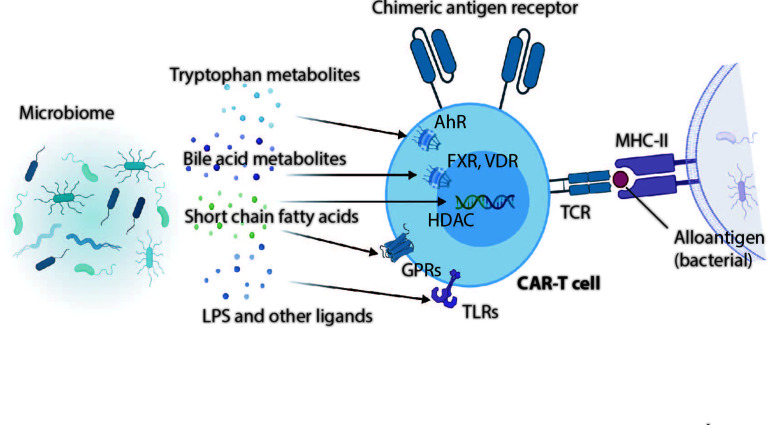Figure 1.
Gut microbial metabolites and microbial ligands can exert far reaching influences on T cells and presumably also CAR-T cells. Whereas tryptophan metabolites can act on T cells through the cytoplasmatic aryl hydrocarbon receptor (AhR), bile acid metabolites induce T cell differentiation and change effector functions through actions on vitamin D receptors (VDR), Farnesoid X receptor (FXR), and also through TGR5, PXR or LXR (no shown in this illustration). Short chain fatty acids act on T cells through G-protein coupled receptors 41, 43 or 109 (GPRs), or regulate immune cell differentiation and function through histone deacetylases (HDACs). Bacterial derived membrane fractions or secreted proteins modulate T cells via Toll-like receptors (TLRs) expressed on activated T cells.

